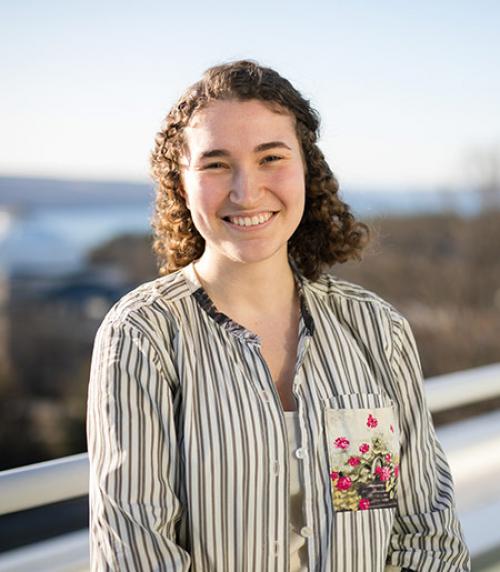Simone Best
American Studies
Metuchen, NJ
What are the most valuable skills you gained from your Arts & Sciences education?
The most valuable thing an education can give us is practice using interdisciplinary approaches to question what we know and how we can use that knowledge to be more thoughtful and caring people. The boundaries between traditional academic disciplines, as well as between our lives in the classroom and our lives as individuals, aren’t as strict as they seem—as students, the most important thing we’re learning is how to be people interacting with the world and one another. I’ve understood my education in American studies as centering around this critical framework rather than a particular object of study. As a fundamentally interdisciplinary program, American Studies courses are often united by theoretical approaches and the driving guidelines of historical consciousness and the ethics of arts and scholarship. Without training students for a specific career path, the American Studies Program encourages critical and compassionate thinking as the primary product of a liberal arts education.
What is your main extracurricular activity--why is it important to you?
I’ve been going to and working at Cornell Cinema since I started at Cornell. Although I do love movies and believe in the academic value of a diverse film exhibition program, it’s the effect of a place like Cornell Cinema on the well-being of students that makes the Cinema so important to me. At a school with a somewhat isolated campus where the dominant social scene is Greek life, finding alternative activities and communities that are safe and inclusive can be hard, especially for new students. Cornell Cinema is visible, accessible, and consistent. Movies don’t ask anything of you. For a lot of students, Cornell Cinema is a caretaker. Going to the movies has been essential to my health and more important to my education than going to class. I love Cornell Cinema.
If you were to offer advice to an incoming first-year student, what would you say?
Be critical of the half-joking refrain, “Cornell is a bubble,” and think constantly about the ways in which Cornell and its students are very much situated in the world beyond campus and beyond Ithaca. Viewing our four years here as if they are taking place in an isolated time and space discounts the ways that this institution can both foster and fail to respond to the same kinds of inequities and violences that students face off-campus. Our position as students at Cornell is inseparable from our projects of thinking and learning. This means questioning Cornell’s relationships with the Ithaca community and the impacts of Cornell’s business practices and investments, in addition to recognizing the injustices and inadequacies within the institution. This school can be a place that fosters intense intellectual growth, but living and learning at a place with such a deep history and wide influence requires reflection on the broader context of where our education is situated. As we work to be ethical and compassionate people—students, teachers, researchers, activists, artists, whatever—we have to remember that Cornell’s borders are porous, and what we do affects the real world, both on and off campus.




